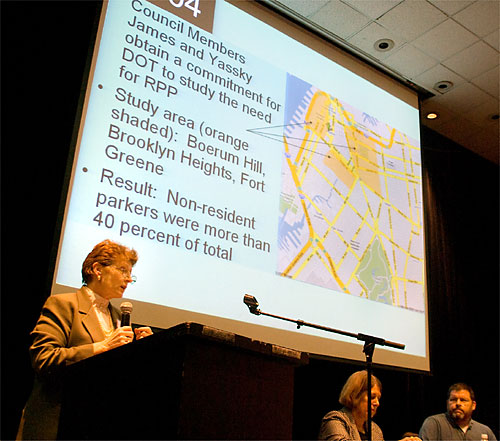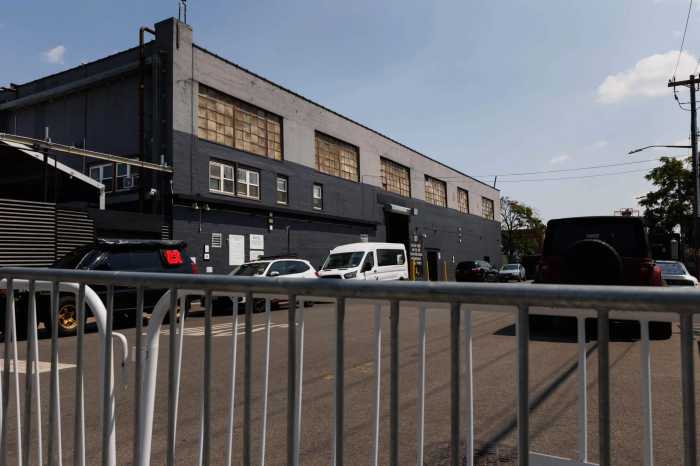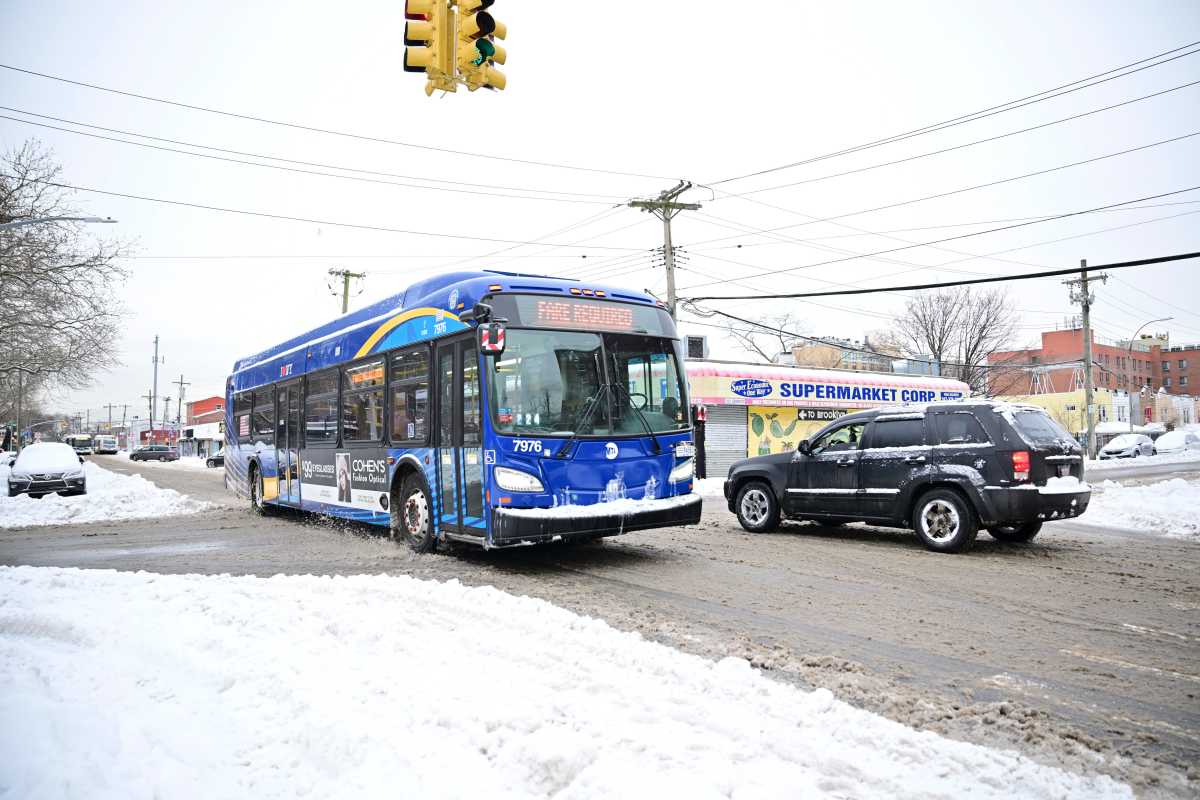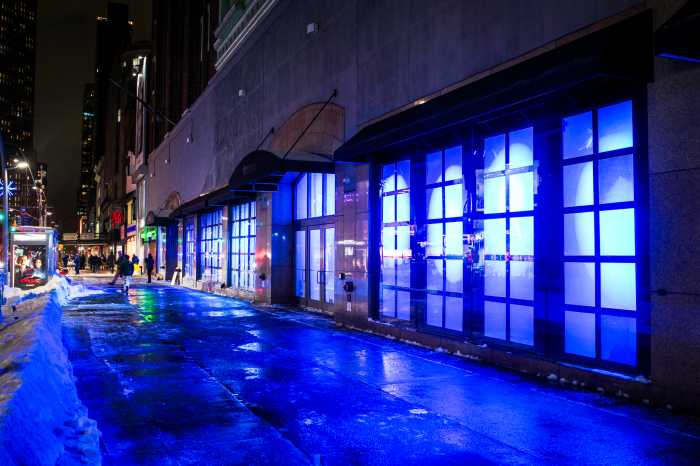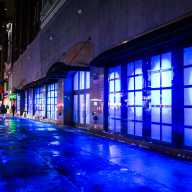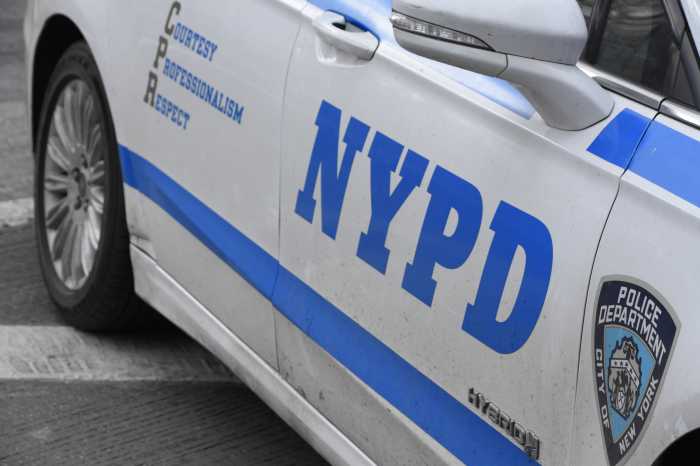A new facet of the city’s congestion-pricing plan would add a fee for Brooklyn drivers looking to park their cars on their own blocks — and if Monday night’s meeting on the proposal is any indication, many residents would line up to pay it.
A commission studying Mayor Bloomberg’s plan — which would charge drivers $8 to enter Manhattan below 60th Street during business hours — has recommended implementing the neighborhood parking permit system by next March as a proactive strike against the “park-and-ride phenomenon,” where commuters park in neighborhoods with ample mass transit and finish their trips to work on the subway, thus avoiding the “congestion” fee.
Residents would be charged between $75- and $125-a-year for the placard allowing them to park in their neighborhood.
Neighborhoods that fit the bill include, Brooklyn Heights, Boerum Hill, Downtown and Park Slope.
Most of the 75 people in attendance at St. Francis College on Remsen Street supported the plan in the hopes that it would allow them to actually park their cars on the street when they arrive home.
“Free parking is not a divine right,” said Jo Anne Simon, a Boerum Hill activist. “This is about residents having the ability to park in their own neighborhoods without being crowded and having non-residents use their neighborhoods as a commuter parking lot.”
Simon referred to a Downtown Brooklyn Council study that said 46 percent of cars parked on Downtown streets during the day were commuters.
Local pols — including councilmembers Letitia James (D–Fort Greene), Bill DeBlasio (D–Cobble Hill) and David Yassky (D–Brooklyn Heights) — are behind the plan, even with its admitted limitations.
“It’s a mathematical impossibility that everyone could park on the street … We’re not talking about a reserved space outside your front door,” said Yassky. “We’re talking about making it a little easier.”
But some critics say the program is just another handout to denizens of well-heeled neighborhoods.
“They already have mass transit. They already live in a desirable area, now the city is saying they should have a car,” said Mandy Harris, one of about 10 people wearing T-shirts saying, “Windsor Terrace is not a parking lot.”
That T-shirt captures the dread of some in Windsor Terrace that their neighborhood would have to absorb would-be parkers if nearby Park Slope opts for permits.
Other people in the audience said the permit plan won’t make a dent unless the city cracks down on parking abuse by government employees in Downtown Brooklyn.
The mayor recently announced he would reduce the number of placards issued to tackle this perennial problem.
Nonetheless, residential parking permits have been a priority for many neighborhood groups. For the first time, they seem within reach.
But the city will be hard-pressed to convert its concept into a workable system by next spring.
“If we’re talking about implementing residential parking permits in the short term, we need to keep it simple,” said Bruce Schaller, a deputy commissioner for the DOT.
That’s easier said than done. The city will have to figure out how to deal with visitor parking, what hours the plan would be in operation, and how to set neighborhood boundaries.


